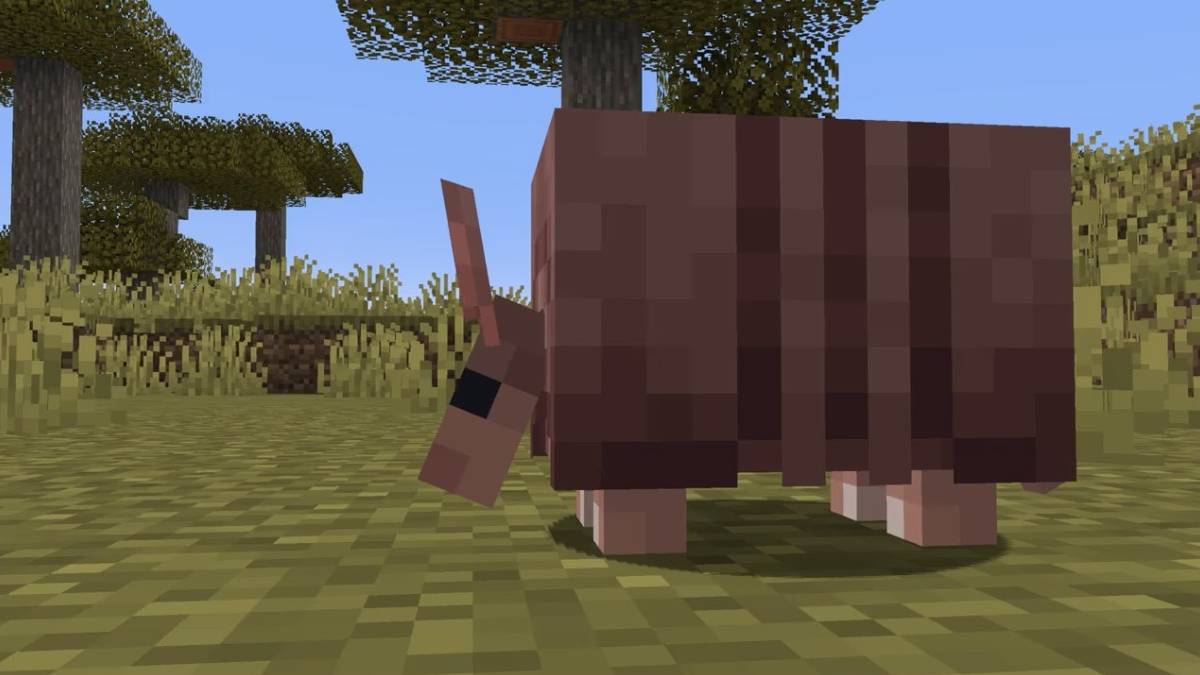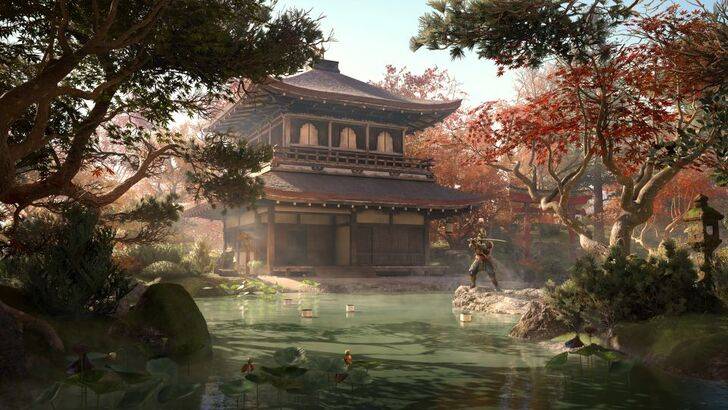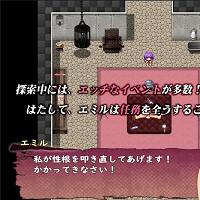Mastering Minecraft's Diverse Wood Types: A Comprehensive Guide
This guide explores Minecraft's twelve primary wood types, detailing their unique characteristics and optimal uses in crafting and construction. Each wood offers distinct aesthetic qualities, impacting your building projects significantly.
Table of Contents
- Oak
- Birch
- Spruce
- Jungle
- Acacia
- Dark Oak
- Pale Oak
- Mangrove
- Warped
- Crimson
- Cherry
- Azalea
Oak
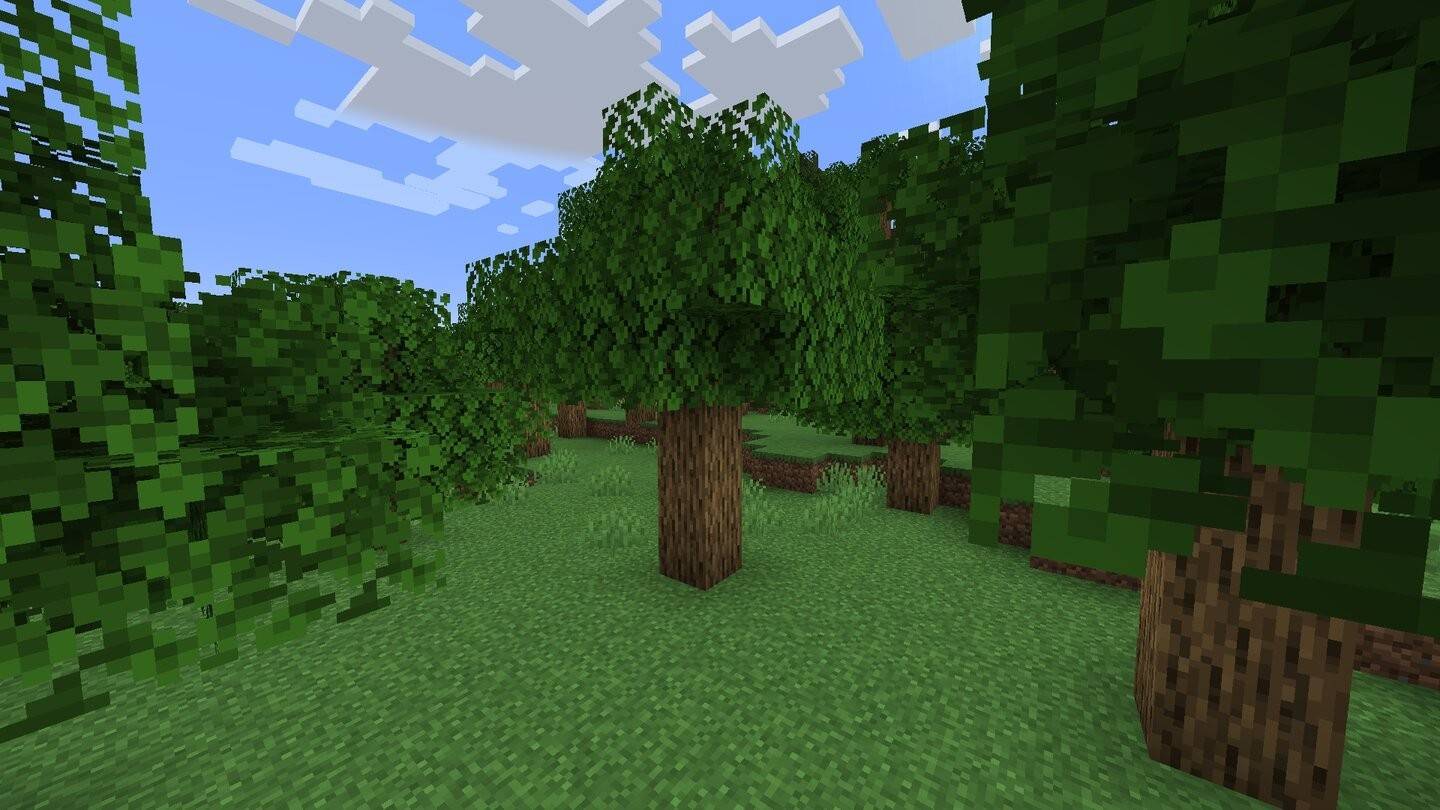 Image: ensigame.com
Image: ensigame.com
Ubiquitous in most biomes (excluding deserts and tundras), oak wood is versatile for various creations: planks, sticks, fences, ladders, and more. Oak trees yield apples, useful early-game food or golden apple crafting components. Its neutral tone suits diverse architectural styles, from rustic homes to cityscapes.
Birch
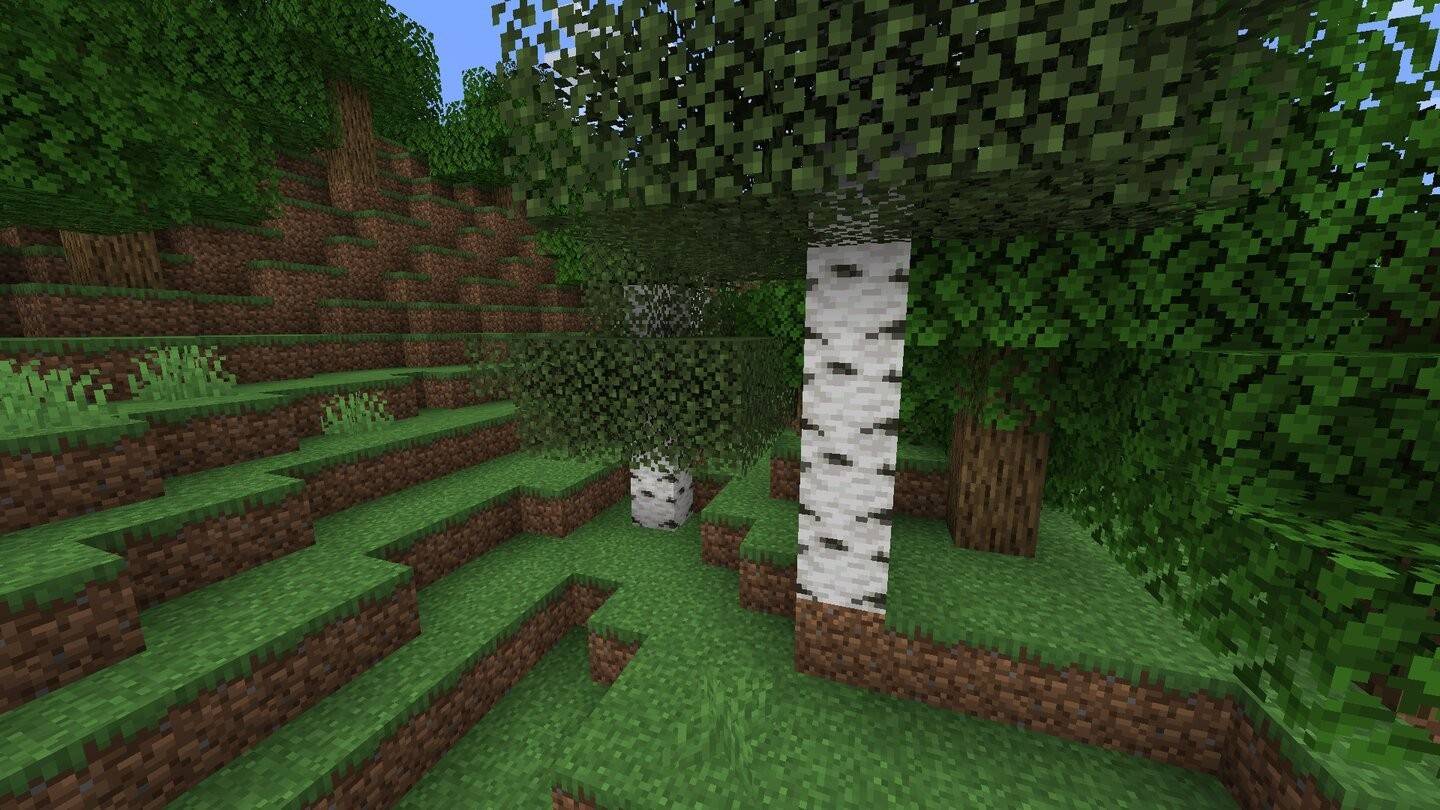 Image: ensigame.com
Image: ensigame.com
Found in birch and mixed biomes, birch wood's light, patterned texture lends itself to modern or minimalist designs. It complements stone and glass, creating bright, airy interiors.
Spruce
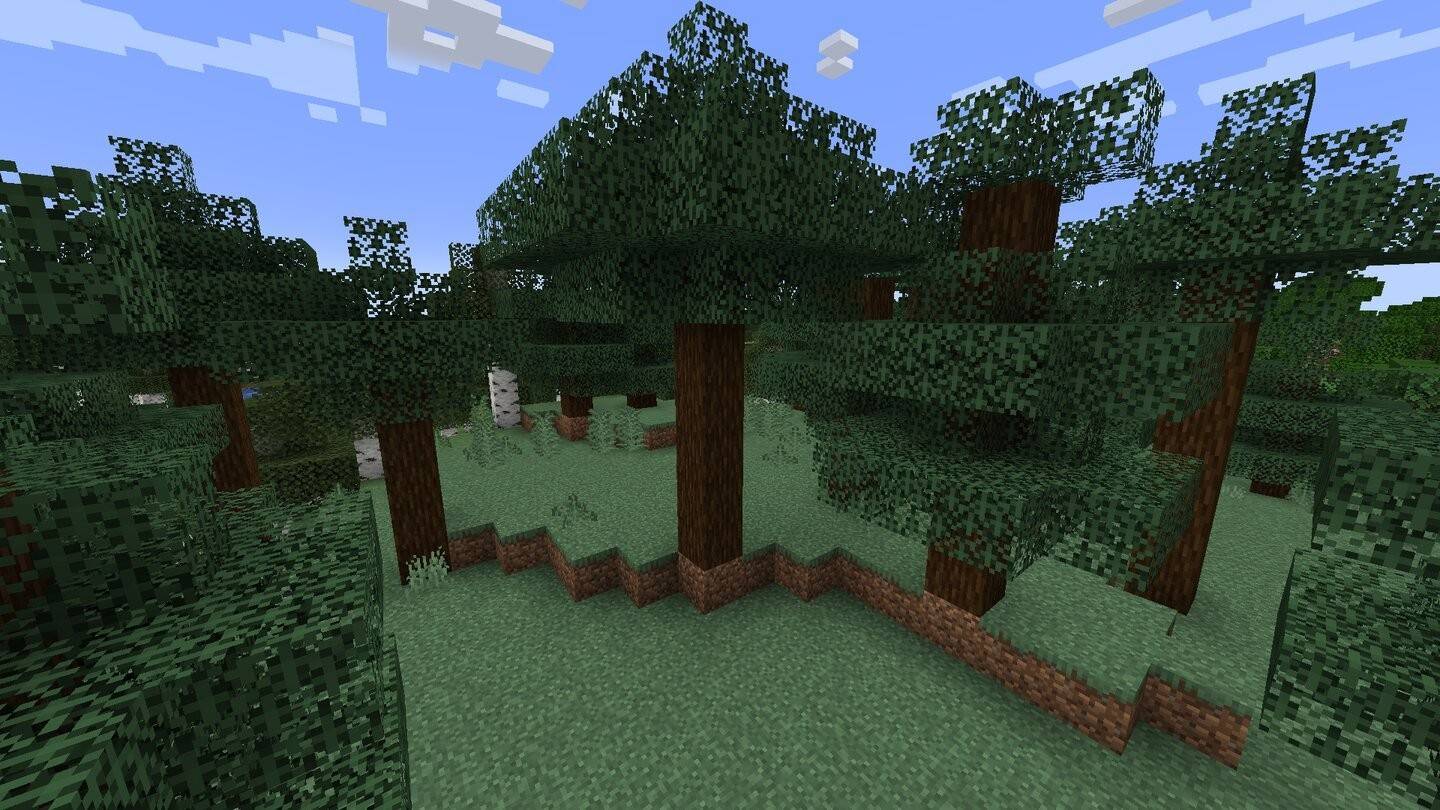 Image: ensigame.com
Image: ensigame.com
Dark spruce wood evokes gothic or grim aesthetics. Its tall stature presents a slight harvesting challenge. Common in taiga and snowy biomes, its texture adds a robust feel to medieval castles, bridges, or country houses.
Jungle
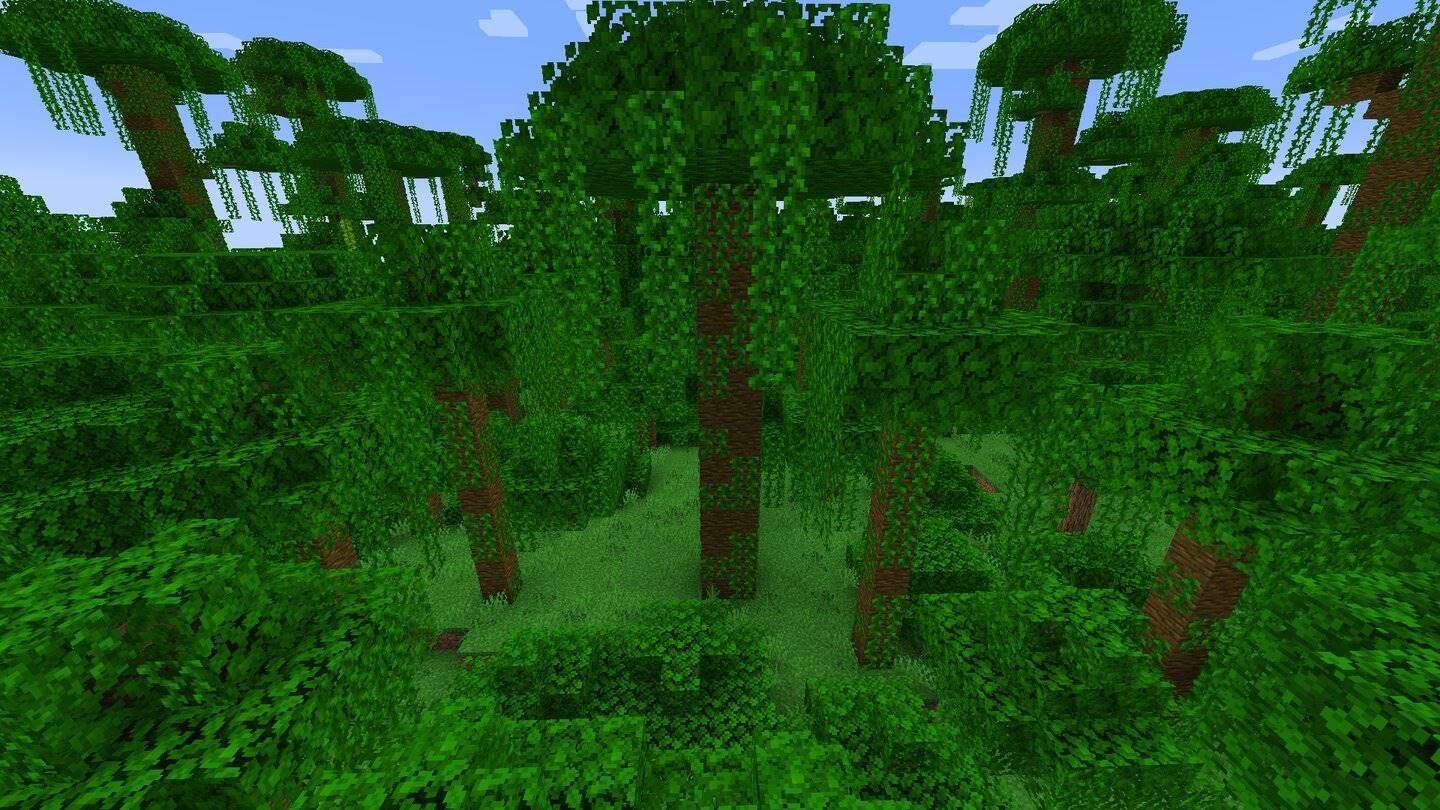 Image: ensigame.com
Image: ensigame.com
Jungle trees, towering giants found exclusively in jungle biomes, boast a bright hue, ideal for decorative elements. Their cocoa bean yields make them valuable for cocoa farms. Their exotic appearance suits adventure-themed builds or pirate bases.
Acacia
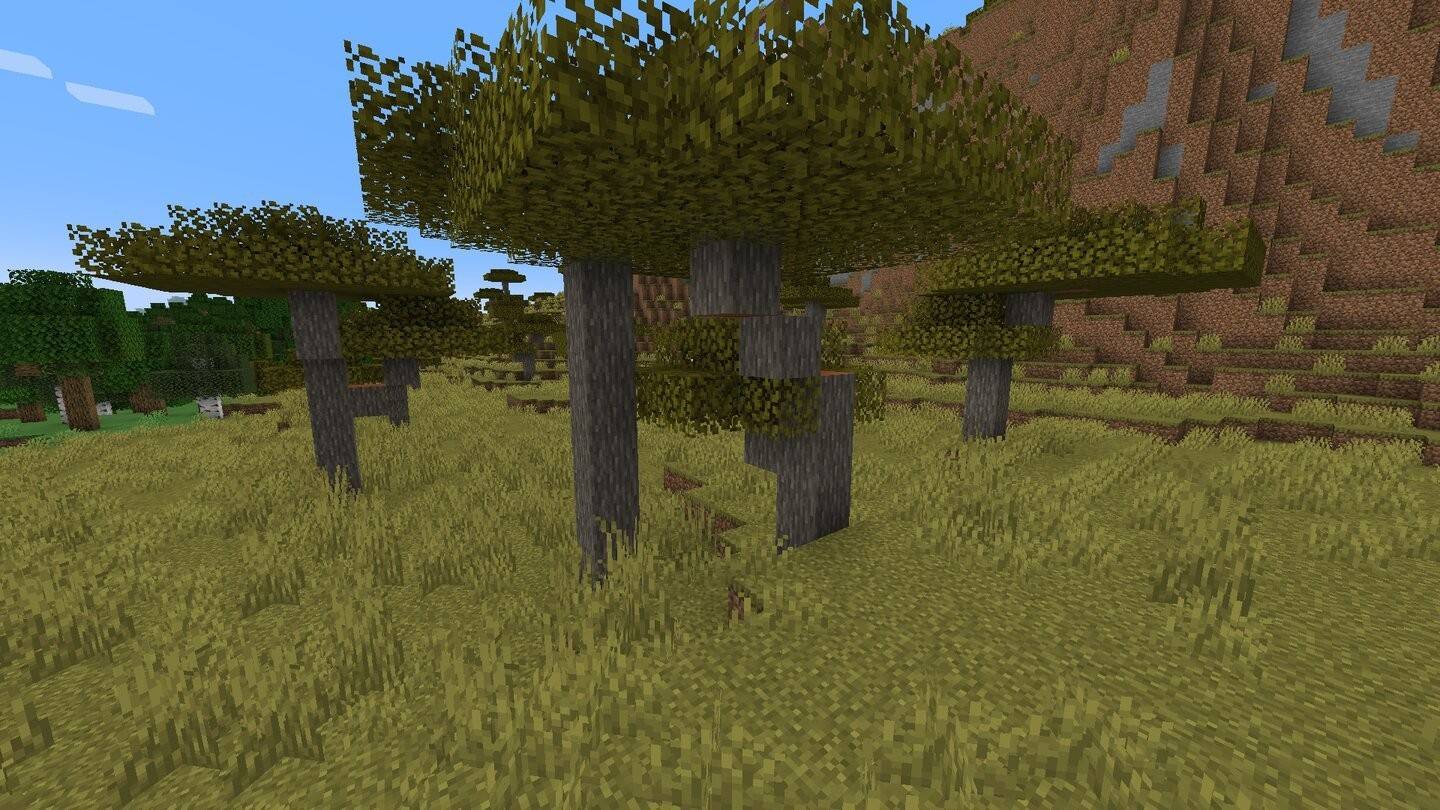 Image: ensigame.com
Image: ensigame.com
Acacia wood's reddish tint complements desert biomes. Its unique, horizontally spreading branches create distinctive savanna structures. It's perfect for ethnic-style villages, desert bridges, or African-inspired builds.
Dark Oak
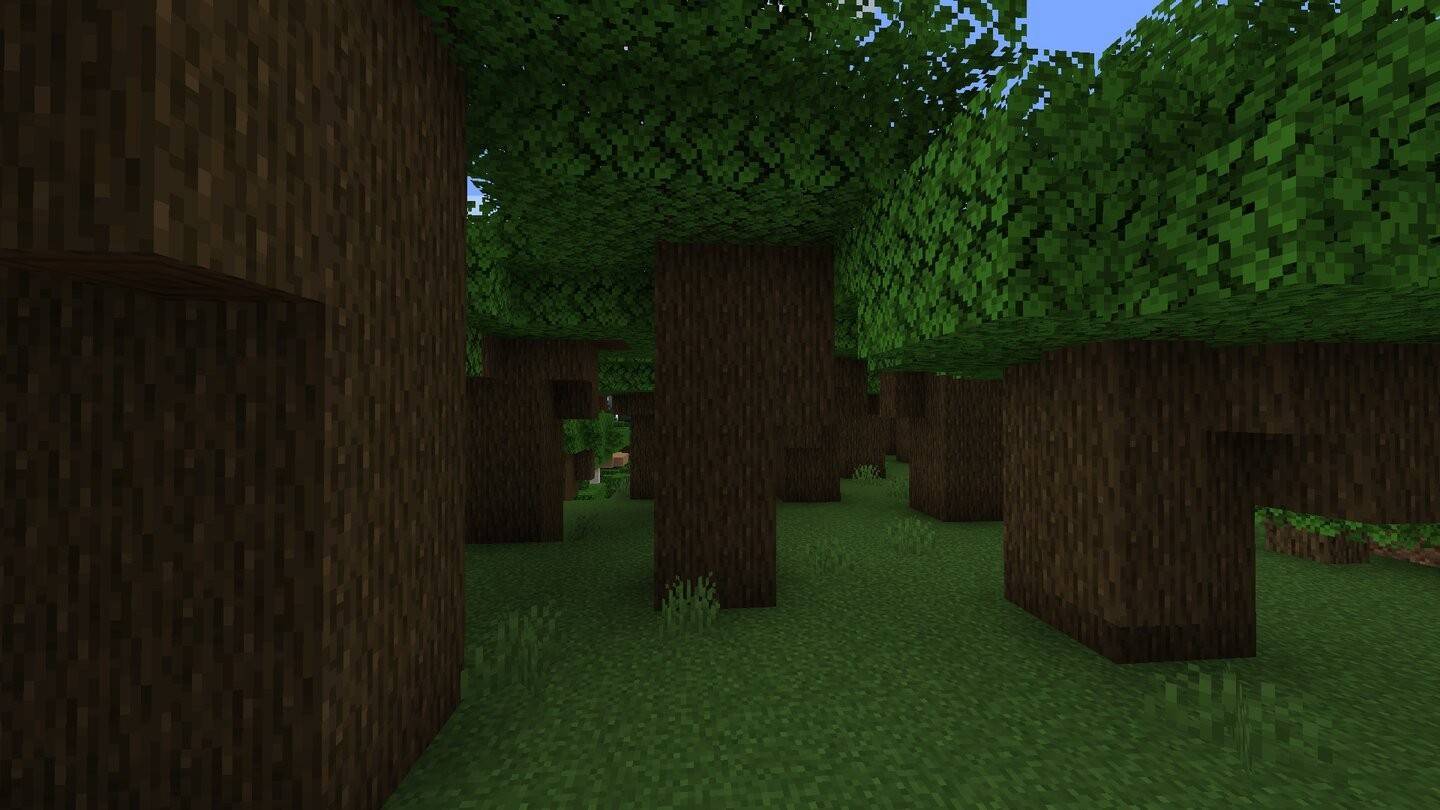 Image: ensigame.com
Image: ensigame.com
This rich, chocolate-brown wood is popular for castles and medieval structures. Found only in Roofed Forests, its deep texture creates luxurious interiors or imposing doors. Requires four saplings for planting.
Pale Oak
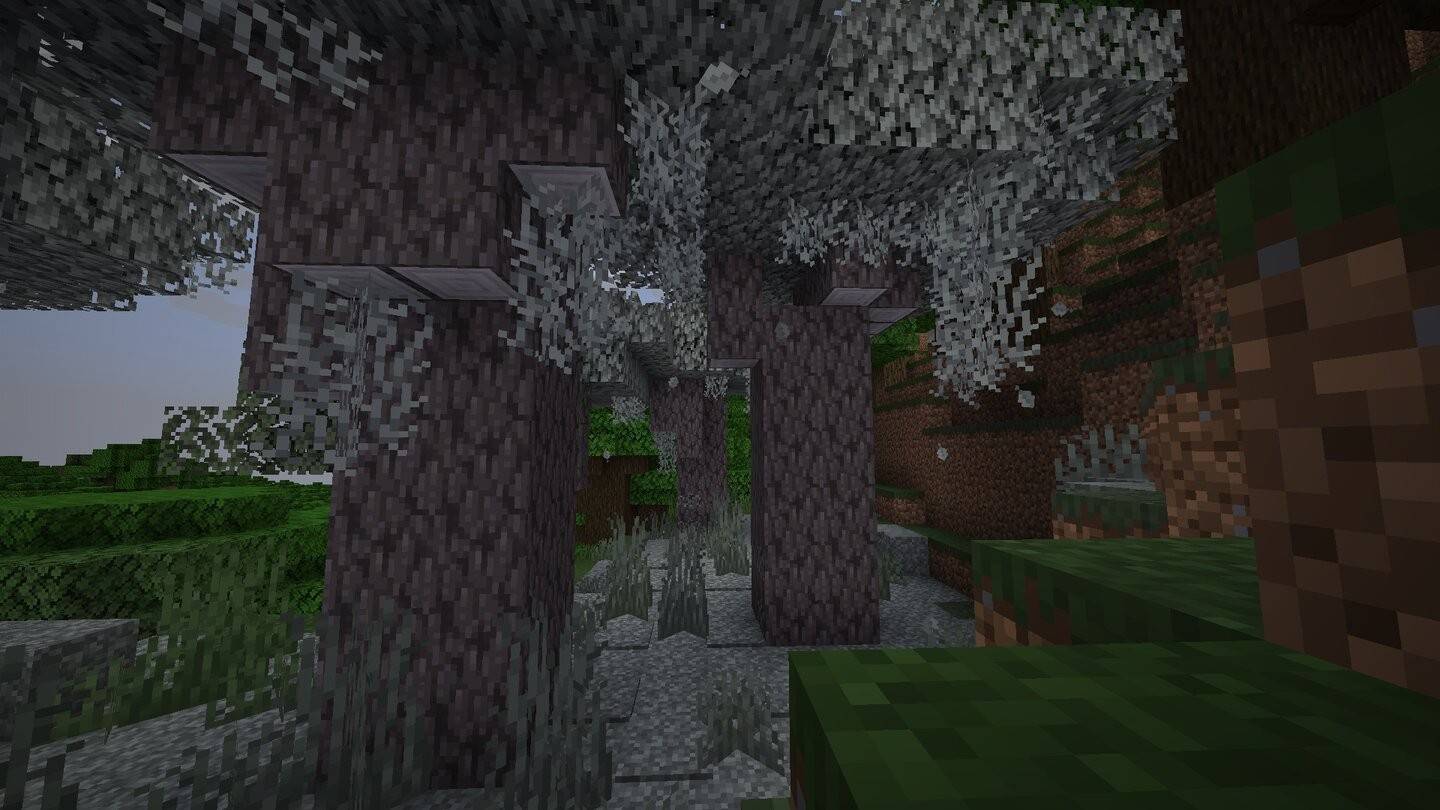 Image: ensigame.com
Image: ensigame.com
A rare find in Pale Garden biomes, pale oak shares dark oak's texture but features gray tones. Its hanging moss and "skripcevina" (summoning aggressive "skripuns" at night) add unique gameplay elements. It contrasts beautifully with dark oak.
Mangrove
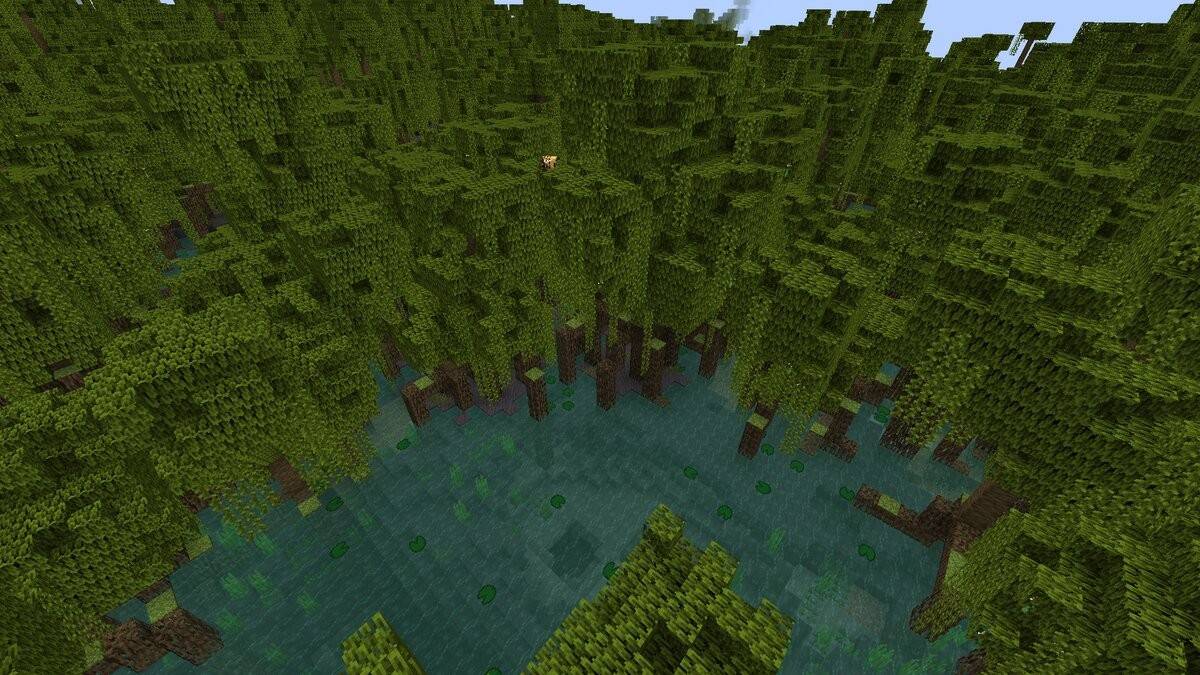 Image: youtube.com
Image: youtube.com
A recent addition, mangrove wood, found in mangrove swamps, has a reddish-brown hue. Its roots serve as decorative building components. It's perfect for authentic wooden piers, bridges, or swamp-themed constructions.
Warped
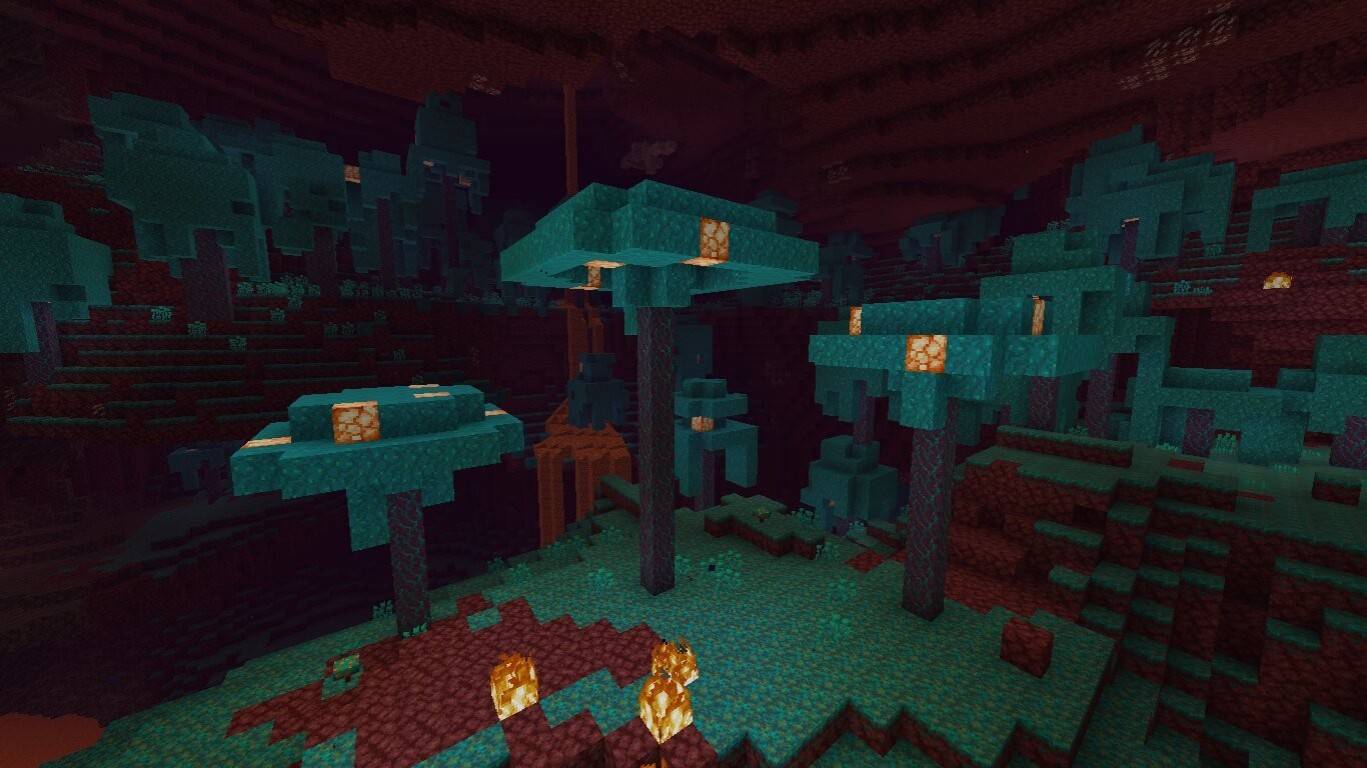 Image: feedback.minecraft.net
Image: feedback.minecraft.net
One of the Nether's two wood types, warped wood's turquoise color creates unique fantasy builds. Its bright texture is ideal for magic towers, mystical portals, or decorative gardens. Nether wood is non-flammable.
Crimson
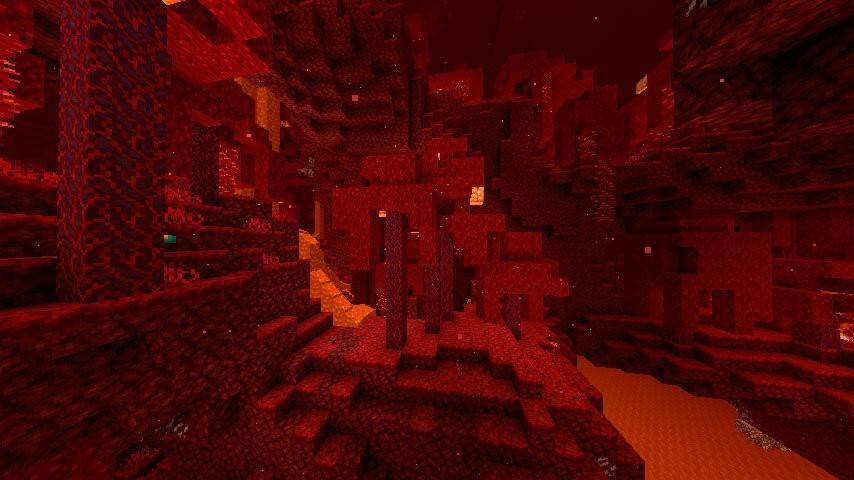 Image: pixelmon.site
Image: pixelmon.site
The Nether's other wood type, crimson wood's red-purple hue suits dark or demonic themes. Non-flammable, it's perfect for hazardous environments and Nether-themed interiors.
Cherry
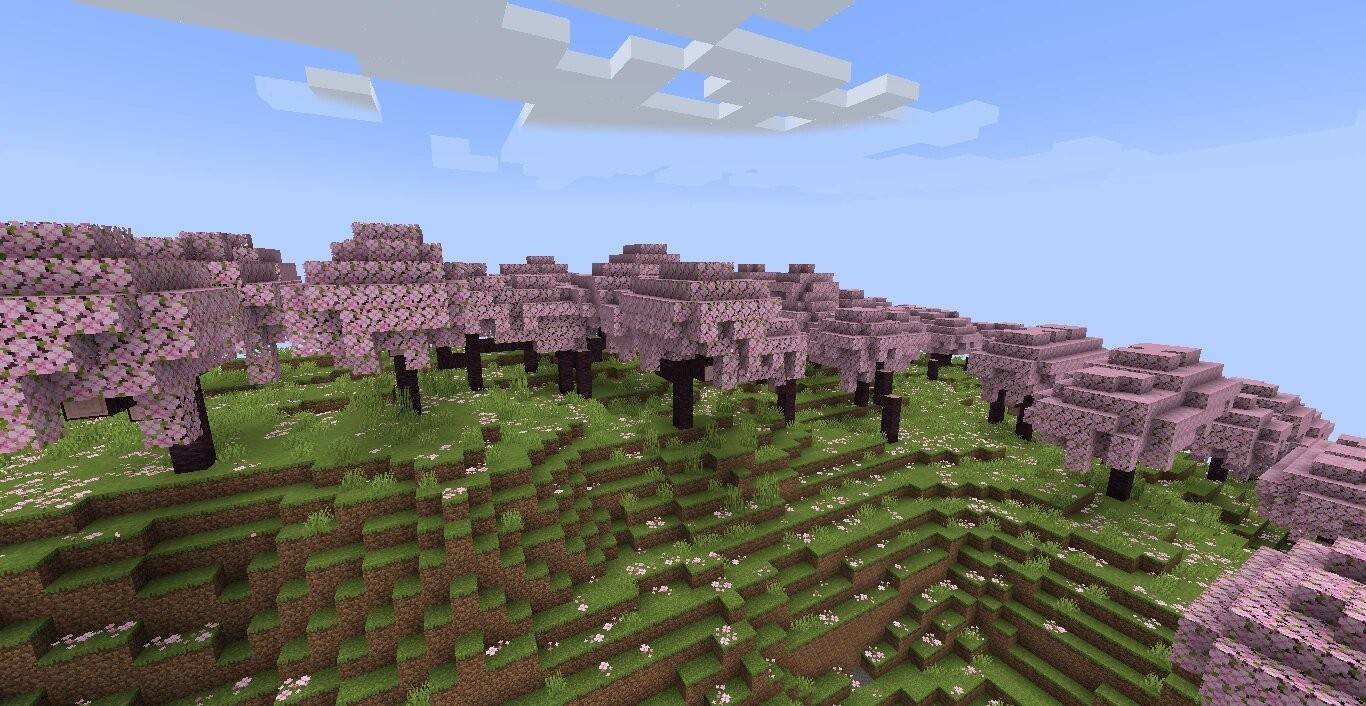 Image: minecraft.fandom.com
Image: minecraft.fandom.com
Found only in cherry grove biomes, cherry wood's bright pink shade and falling petal particles create atmospheric designs. It's excellent for interior decoration and unique furniture.
Azalea
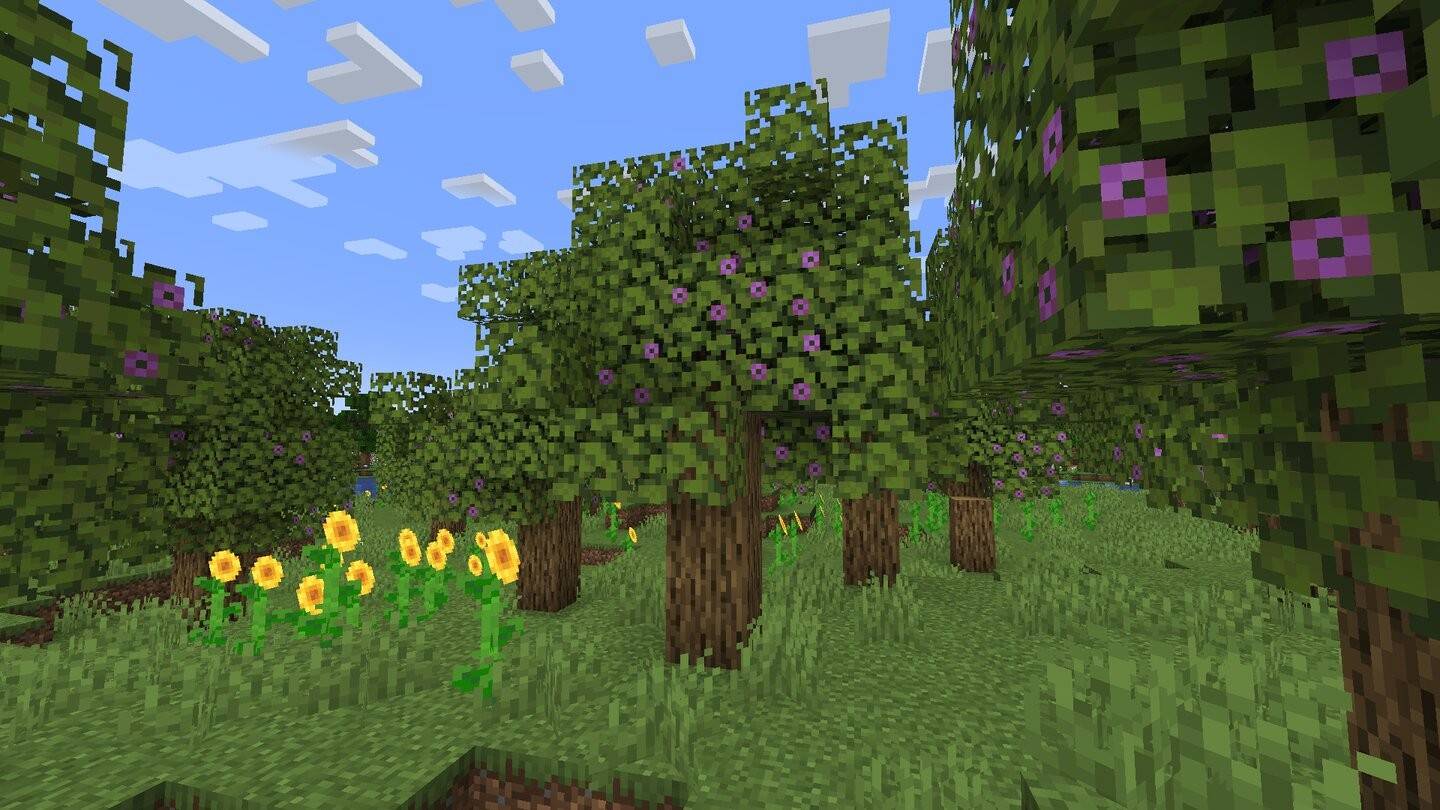 Image: ensigame.com
Image: ensigame.com
Similar to oak, azalea trees grow above lush caves, aiding mine discovery. Its root system and unique flowers add visual interest. The wood itself is standard oak.
Beyond crafting, wood's aesthetic versatility enhances your Minecraft experience. Explore these diverse options to build unique and memorable structures. Grab your axe and unleash your creativity!

 Latest Downloads
Latest Downloads
 Downlaod
Downlaod




 Top News
Top News

